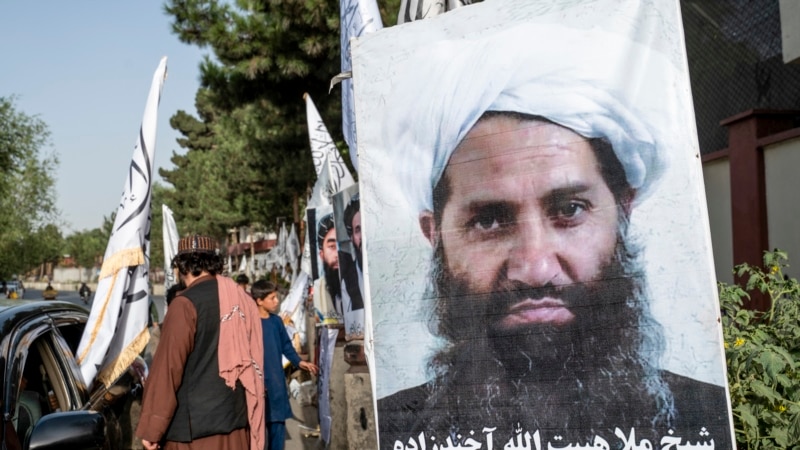The leader of Afghanistan’s governing radical Taliban has defended his policies, including banning female access to education and employment, asserting that they are derived from the “commands of Allah.”
Hibatullah Akhundzada’s assertions came days after the chief prosecutor of the International Criminal Court announced he was seeking arrest warrants for the reclusive Taliban leader, holding him “criminally responsible for persecuting Afghan girls and women.”
A Taliban statement said that Akhundzada addressed teachers, staff and students at a public university in the southern province of Kandahar on Wednesday during his first known visit to a modern education institution, where he also discussed the significance of his edicts.
“The esteemed supreme leader stated that every decree he issues is based on consultation with scholars and derived from the Quran and Hadith [sayings of Islam’s prophet], and represents commands of Allah,” the Taliban chief was quoted as saying.
Akhundzada seldom leaves his office in Kandahar and rules impoverished Afghanistan from there through numerous decrees he has issued over the past three years. He has barred girls from attending school beyond the sixth grade and blocked female students from accessing university education.
Afghan women are banned from most public and private sector employment nationwide. They are not allowed to travel by road or air without a chaperone and cannot visit public places such as parks, gyms or beauty salons.
The Taliban supreme leader stated in his speech on Wednesday that religious schools and universities are essentially the same and emphasized the importance of supporting and safeguarding both types of educational institutions in the country.
“Now it is your turn to make Afghanistan competitive globally with your knowledge and wisdom. Work hard so that foreigners come here to learn from you and use your knowledge to succeed globally,” Akhundzada said. “Professors and students, you must acquire religious and worldly education but serve religion solely.”
The Taliban government, not recognized by any country, has established dozens of new Islamic seminaries, known as madrasas, to promote their strict interpretation of Islamic beliefs and laws, according to observers.
In his Jan. 23 declaration, ICC Prosecutor Karim Khan stated that his decision to seek Akhundzada’s arrest warrants was based on a thorough investigation and evidence collected.
“Our action signals that the status quo for women and girls in Afghanistan is not acceptable. Afghan survivors, in particular women and girls, deserve accountability before a court of law,” Khan said.
The Taliban condemned Khan’s action as “devoid of just legal basis, duplicitous in nature and politically motivated.”
The international community has refused to accept the Taliban as the legitimate rulers of Afghanistan, mainly over their harsh treatment of women and other human rights concerns.
The United States and other Western countries have slapped economic sanctions on the country and primarily isolated the Afghan banking sector since the Taliban takeover. Several senior leaders of the Taliban are still listed as terrorist entities by the United Nations.
An international conference of Muslim leaders hosted by Pakistan last month condemned “extremist ideologies” and religious edicts, known as fatwas, that are rooted in cultural norms obstructing girls’ education as a “grave misuse of religious principles to legitimize policies of deprivation and exclusion.”
The conference declaration, without naming the de facto Afghan rulers, noted that anyone who rejects or opposes Islamic principles mandating equal education for men and women “is considered outside the framework of the Islamic Ummah’s [Islamic world’s] concepts and cannot be regarded as part of it.”


